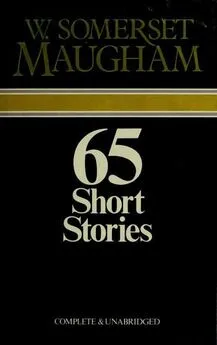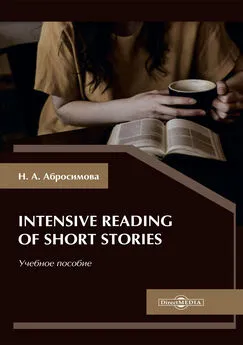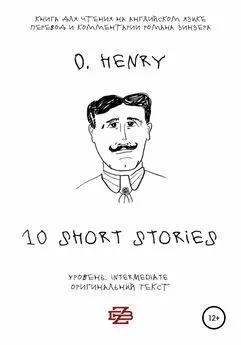Somerset Maugham - Sixty-Five Short Stories
- Название:Sixty-Five Short Stories
- Автор:
- Жанр:
- Издательство:неизвестно
- Год:неизвестен
- ISBN:нет данных
- Рейтинг:
- Избранное:Добавить в избранное
-
Отзывы:
-
Ваша оценка:
Somerset Maugham - Sixty-Five Short Stories краткое содержание
Sixty-Five Short Stories - читать онлайн бесплатно полную версию (весь текст целиком)
Интервал:
Закладка:
'The captain believes every word of it.'
'That's obvious; but, you know, that's not the part that interests me most: whether it's true or not, and what it all means; the part that interests me is that such things should happen to such people. I wonder what there is in that common-place little man to arouse such a passion in that lovely creature. As I watched her, asleep there, while he was telling the story I had some fantastic idea about the power of love being able to work miracles.'
'But that's not the girl,' said Winter.
'What on earth do you mean?'
'Didn't you notice the cook?'
'Of course I did. He's the ugliest man I ever saw.'
'That's why Butler took him. The girl ran away with the Chinese cook last year. This is a new one. He's only had her there about two months.'
'Well, I'm hanged.'
'He thinks this cook is safe. But I wouldn't be too sure in his place. There's something about a Chink, when he lays himself out to please a woman she can't resist him.'
The Ant and the Grasshopper
When I was a very small boy I was made to learn by heart certain of the fables of La Fontaine, and the moral of each was carefully explained to me. Among those I learnt was The Ant and The Grasshopper which is devised to bring home to the young the useful lesson that in an imperfect world industry is rewarded and giddiness punished. In this admirable fable (I apologize for telling something which everyone is politely, but inexactly, supposed to know) the ant spends a laborious summer gathering its winter store, while the grasshopper sits on a blade of grass singing to the sun. Winter comes and the ant is comfortably provided for, but the grasshopper has an empty larder: he goes to the ant and begs for a little food. Then the ant gives him her classic answer:
'What were you doing in the summer time?'
'Saving your presence, I sang, I sang all day, all night.'
'You sang. Why, then go and dance.'
I do not ascribe it to perversity on my part, but rather to the inconsequence of childhood, which is deficient in moral sense, that I could never quite reconcile myself to the lesson. My sympathies were with the grasshopper and for some time I never saw an ant without putting my foot on it. In this summary (and as I have discovered since, entirely human) fashion I sought to express my disapproval of prudence and common sense.
I could not help thinking of this fable when the other day I saw George Ramsay lunching by himself in a restaurant. I never saw anyone wear an expression of such deep gloom. He was staring into space. He looked as though the burden of the whole world sat on his shoulders. I was sorry for him: I suspected at once that his unfortunate brother had been causing trouble again. I went up to him and held out my hand.
'How are you?' I asked.
'I'm not in hilarious spirits,' he answered.
'Is it Tom again?'
He sighed.
'Yes, it's Tom again.'
'Why don't you chuck him? You've done everything in the world for him. You must know by now that he's quite hopeless.'
I suppose every family has a black sheep. Tom had been a sore trial to his for twenty years. He had begun life decently enough: he went into business, married, and had two children. The Ramsays were perfectly respectable people and there was every reason to suppose that Tom Ramsay would have a useful and honourable career. But one day, without warning, he announced that he didn't like work and that he wasn't suited for marriage. He wanted to enjoy himself. He would listen to no expostulations. He left his wife and his office. He had a little money and he spent two happy years in the various capitals of Europe. Rumours of his doings reached his relations from time to time and they were profoundly shocked. He certainly had a very good time. They shook their heads and asked what would happen when his money was spent. They soon found out: he borrowed. He was charming and unscrupulous. I have never met anyone to whom it was more difficult to refuse a loan. He made a steady income from his friends and he made friends easily. But he always said that the money you spent on necessities was boring; the money that was amusing to spend was the money you spent on luxuries. For this he depended on his brother George. He did not waste his charm on him. George was a serious man and insensible to such enticements. George was respectable. Once or twice he fell to Tom's promises of amendment and gave him considerable sums in order that he might make a fresh start. On these Tom bought a motor-car and some very nice jewellery. But when circumstances forced George to realize that his brother would never settle down and he washed his hands of him, Tom, without a qualm, began to blackmail him. It was not very nice for a respectable lawyer to find his brother shaking cocktails behind the bar of his favourite restaurant or to see him waiting on the box-seat of a taxi outside his club. Tom said that to serve in a bar or to drive a taxi was a perfectly decent occupation, but if George could oblige him with a couple of hundred pounds he didn't mind for the honour of the family giving it up. George paid.
Once Tom nearly went to prison. George was terribly upset. He went into the whole discreditable affair. Really Tom had gone too far. He had been wild, thoughtless, and selfish, but he had never before done anything dishonest, by which George meant illegal; and if he were prosecuted he would assuredly be convicted. But you cannot allow your only brother to go to gaol. The man Tom had cheated, a man called Cronshaw, was vindictive. He was determined to take the matter into court; he said Tom was a scoundrel and should be punished. It cost George an infinite deal of trouble and five hundred pounds to settle the affair. I have never seen him in such a rage as when he heard that Tom and Cronshaw had gone off together to Monte Carlo the moment they cashed the cheque. They spent a happy month there.
For twenty years Tom raced and gambled, philandered with the prettiest girls, danced, ate in the most expensive restaurants, and dressed beautifully. He always looked as if he had just stepped out of a bandbox. Though he was forty-six you would never have taken him for more than thirty-five. He was a most amusing companion and though you knew he was perfectly worthless you could not but enjoy his society. He had high spirits, an unfailing gaiety, and incredible charm. I never grudged the contributions he regularly levied on me for the necessities of his existence. I never lent him fifty pounds without feeling that I was in his debt. Tom Ramsay knew everyone and everyone knew Tom Ramsay. You could not approve of him, but you could not help liking him.
Poor George, only a year older than his scapegrace brother, looked sixty. He had never taken more than a fortnight's holiday in the year for a quarter of a century. He was in his office every morning at nine-thirty and never left it till six. He was honest, industrious, and worthy. He had a good wife, to whom he had never been unfaithful even in thought, and four daughters to whom he was the best of fathers. He made a point of saving a third of his income and his plan was to retire at fifty-five to a little house in the country where he proposed to cultivate his garden and play golf. His life was blameless. He was glad that he was growing old because Tom was growing old too. He rubbed his hands and said:
'It was all very well when Tom was young and good-looking, but he's only a year younger than I am. In four years he'll be fifty. He won't find life so easy then. I shall have thirty thousand pounds by the time I'm fifty. For twenty-five years I've said that Tom would end in the gutter. And we shall see how he likes that. We shall see if it really pays best to work or be idle.'
Poor George! I sympathized with him. I wondered now as I sat down beside him what infamous thing Tom had done. George was evidently very much upset.
'Do you know what's happened now?' he asked me.
I was prepared for the worst. I wondered if Tom had got into the hands of the police at last. George could hardly bring himself to speak.
'You're not going to deny that all my life I've been hardworking, decent, respectable, and straightforward. After a life of industry and thrift I can look forward to retiring on a small income in gilt-edged securities. I've always done my duty in that state of life in which it has pleased Providence to place me.'
'True.'
'And you can't deny that Tom has been an idle, worthless, dissolute, and dishonourable rogue. If there were any justice he'd be in the workhouse.'
'True.'
George grew red in the face.
'A few weeks ago he became engaged to a woman old enough to be his mother. And now she's died and left him everything she had. Half a million pounds, a yacht, a house in London, and a house in the country.'
George Ramsay beat his clenched fist on the table.
'It's not fair, I tell you, it's not fair. Damn it, it's not fair.'
I could not help it. I burst into a shout of laughter as I looked at George's wrathful face, I rolled in my chair, I very nearly fell on the floor. George never forgave me. But Tom often asks me to excellent dinners in his charming house in Mayfair, and if he occasionally borrows a trifle from me, that is merely from force of habit. It is never more than a sovereign.
The Pool
When I was introduced to Lawson by Chaplin, the owner of the Hotel Metropole at Apia, I paid no particular attention to him. We were sitting in the lounge over an early cocktail and I was listening with amusement to the gossip of the island.
Chaplin entertained me. He was by profession a mining engineer and perhaps it was characteristic of him that he had settled in a place where his professional attainments were of no possible value. It was, however, generally reported that he was an extremely clever mining engineer. He was a small man, neither fat nor thin, with black hair, scanty on the crown, turning grey, and a small, untidy moustache; his face, partly from the sun and partly from liquor, was very red. He was but a figurehead, for the hotel, though so grandly named but a frame building of two storeys, was managed by his wife, a tall, gaunt Australian of five-and-forty, with an imposing presence and a determined air. The little man, excitable and often tipsy, was terrified of her, and the stranger soon heard of domestic quarrels in which she used her fist and her foot in order to keep him in subjection. She had been known after a night of drunkenness to confine him for twenty-four hours to his own room, and then he could be seen, afraid to leave his prison, talking somewhat pathetically from his veranda to people in the street below.
He was a character, and his reminiscences of a varied life, whether true or not, made him worth listening to, so that when Lawson strolled in I was inclined to resent the interruption. Although not midday, it was clear that he had had enough to drink, and it was without enthusiasm that I yielded to his persistence and accepted his offer of another cocktail. I knew already that Chaplin's head was weak. The next round which in common politeness I should be forced to order would be enough to make him lively, and then Mrs Chaplin would give me black looks.
Nor was there anything attractive in Lawson's appearance. He was a little thin man, with a long, sallow face and a narrow, weak chin, a prominent nose, large and bony, and great shaggy black eyebrows. They gave him a peculiar look. His eyes, very large and very dark, were magnificent. He was jolly, but his jollity did not seem to me sincere; it was on the surface, a mask which he wore to deceive the world, and I suspected that it concealed a mean nature. He was plainly anxious to be thought a 'good sport' and he was hail-fellow-well-met; but, I do not know why, I felt that he was cunning and shifty. He talked a great deal in a raucous voice, and he and Chaplin capped one another's stories of beanos which had become legendary, stories of 'wet' nights at the English Club, of shooting expeditions where an incredible amount of whisky had been consumed, and of jaunts to Sydney of which their pride was that they could remember nothing from the time they landed till the time they sailed. A pair of drunken swine. But even in their intoxication, for by now, after four cocktails each, neither was sober, there was a great difference between Chaplin, rough and vulgar, and Lawson: Lawson might be drunk, but he was certainly a gentleman.
Читать дальшеИнтервал:
Закладка:










